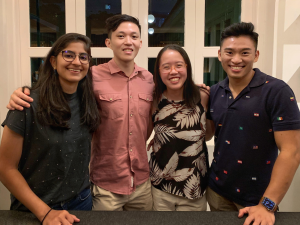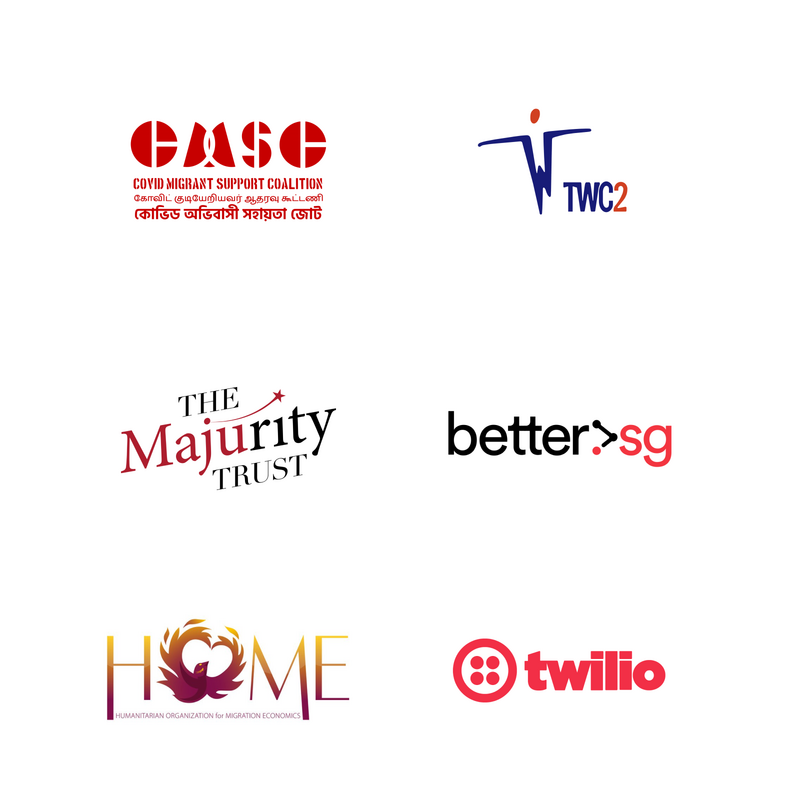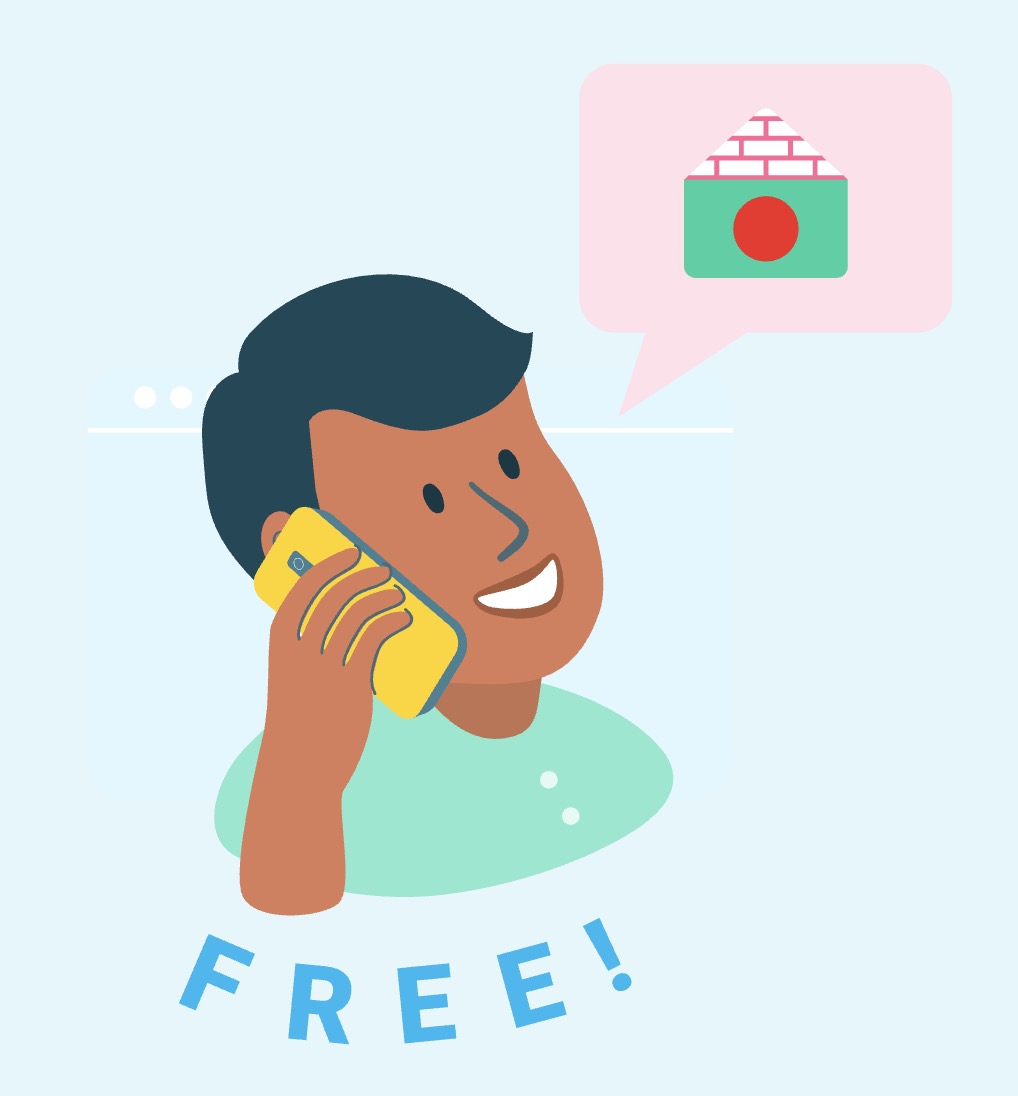Imagine being stuck in a foreign land, unable to work and earn a living, afraid for your health, and worried about your family back home. Anxiety levels rise, tears are shed. You feel alone and trapped with no one to turn to. You desperately want to hear your loved one’s voice because of its much-needed comfort.
This is how many migrant workers have felt since COVID-19 hit our shores. At least 300,000 workers were quarantined to their dormitories, left with nothing to do except to wait out the crisis. Their family members back home were waiting to get updates from them, worried as hundreds of cases were reported daily through Facebook updates and news channels. David, Glen, Meera, and Gloria, brought together by better.sg decided to do something about it. We sat with them to hear about how they built Call Home, an app that helps Migrant Workers in Singapore make 3G calls to landline numbers in their home country. Here’s a little bit about their #techforgood journey.

A less than smooth-sailing launch
The four people behind Call Home had actually never properly met before. In the strangest way, COVID-19 brought them together and the challenge of improving social connectivity in a time of social distancing began.
Many in Singapore adapted to new social distancing rules by relying on digital connectivity to reach out to their loved ones, but one group got left behind. Migrant workers were struggling to afford calling cards after job losses and drastic pay cuts, and their families often lacked stable internet connections which made internet calls unfeasible. Upon noticing this, David, Glen, Meera, and Gloria quickly built a working prototype of what is now Call Home.
With seed funding from Majurity Trust, the team started validating the problem space further. They worked with the COVID-19 Migrant Support Coalition (CMSC) and Transient Workers Count Too (TWC2) to onboard 60 to 70 Bangladeshi workers and run a pilot with them.
“We’re really thankful that the workers were so open with the pilot test, and gave the team a chance. Even though they didn’t know us, the workers still trusted us somehow.”
Meera, Partnerships
Initially, there were many hiccups.
“We had a whole host of phone compatibility issues and other technical problems pop up during the first week of the launch. We didn’t expect a high percentage of Xiaomi users, for example, and it turns out our app didn’t work on Xiaomi browsers.”
Glen, Lead Engineer
But it was uplifting to observe that despite their circumstances, workers were able to offer each other help by, for example, onboarding each other onto the app. This involved overcoming technical and operational hurdles by translating and explaining instructions on how to use the app to each other. This bodes well for the sustainability of the service and will assist in its future adoption, creating opportunities for the migrant worker community to continue supporting each other.
After many nights of troubleshooting, bug fixing and Whatsapp exchanges with our first users, the product finally stabilized, and was ready for regular use.
Encouraging signs of traction
To the team’s surprise, early users kept wanting to add their friends under the pilot, even while technical issues were still being fixed. Workers who had been calling their families once or twice a week were now calling multiple times a day. Once they realized that the cost was not a factor and that calls were no longer luxury goods, workers spoke with their families as often as they needed.
“In the month of August alone, the pilot users made a whopping 6000 calls”
David, Product Lead
The pilot was well-received by workers from a cost-saving standpoint, especially as many of their wages had been drastically cut around the time it was launched. Alam, a Bangladeshi construction worker in Singapore for 19 years and a member of the early pilot, was one such happy user. He usually calls his Ma, Abba, and wife using direct calls. With Call Home, he finds the tension has reduced considerably and he’s a happier man for it.
Promising, so what’s next?
Supporting more workers, sustainably
The Call Home team is aiming to support 10,000 workers within the next year, especially the most vulnerable ones, such as those on a Special Pass, who may be awaiting work injury compensation or are resolving salary disputes. These are challenges that persist even without Covid-19.
They’re choosing to crowdfund the support, to encourage giving back to this community that has built much of our city. Just $25 per month finances one month of calls for each worker, with call costs that are up to 30% cheaper than standard rates.
Call Home sends an important message that emotional needs matter too, not just the basic food and water necessities and that we are used to accepting as sufficient. Rather, the Call Home team realized that the needs of the migrant worker community are dynamic and evolving, and should be treated as such. Digital connectivity in particular is a frequently under-estimated need. Yet, the ability to connect with loved ones plays a critical role in shoring up the resilience of our workers, toiling far away from their homes.
Written By: Louisa Tan & Abhishek Bajaj
Call Home is Endorsed and Supported by:









